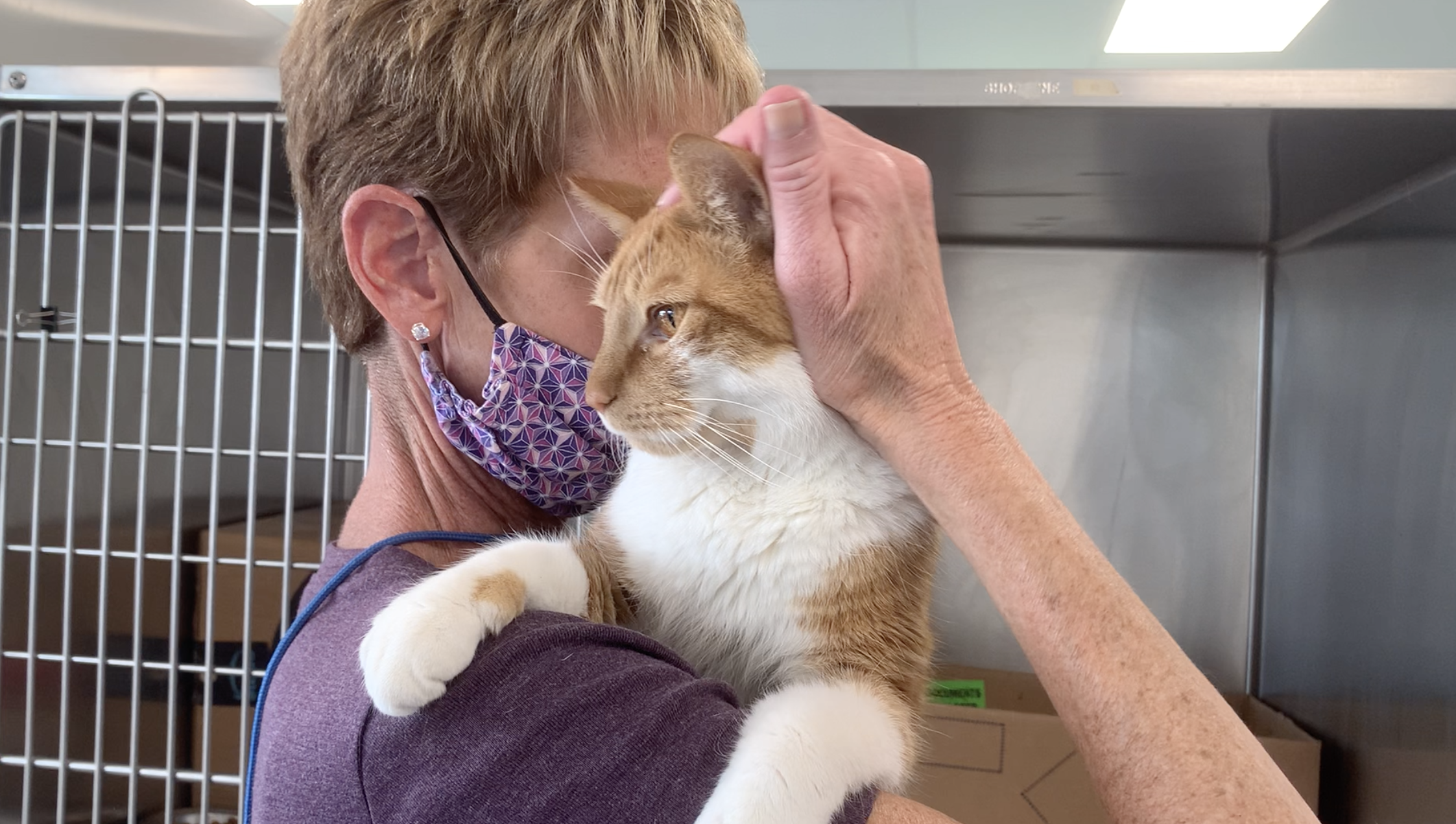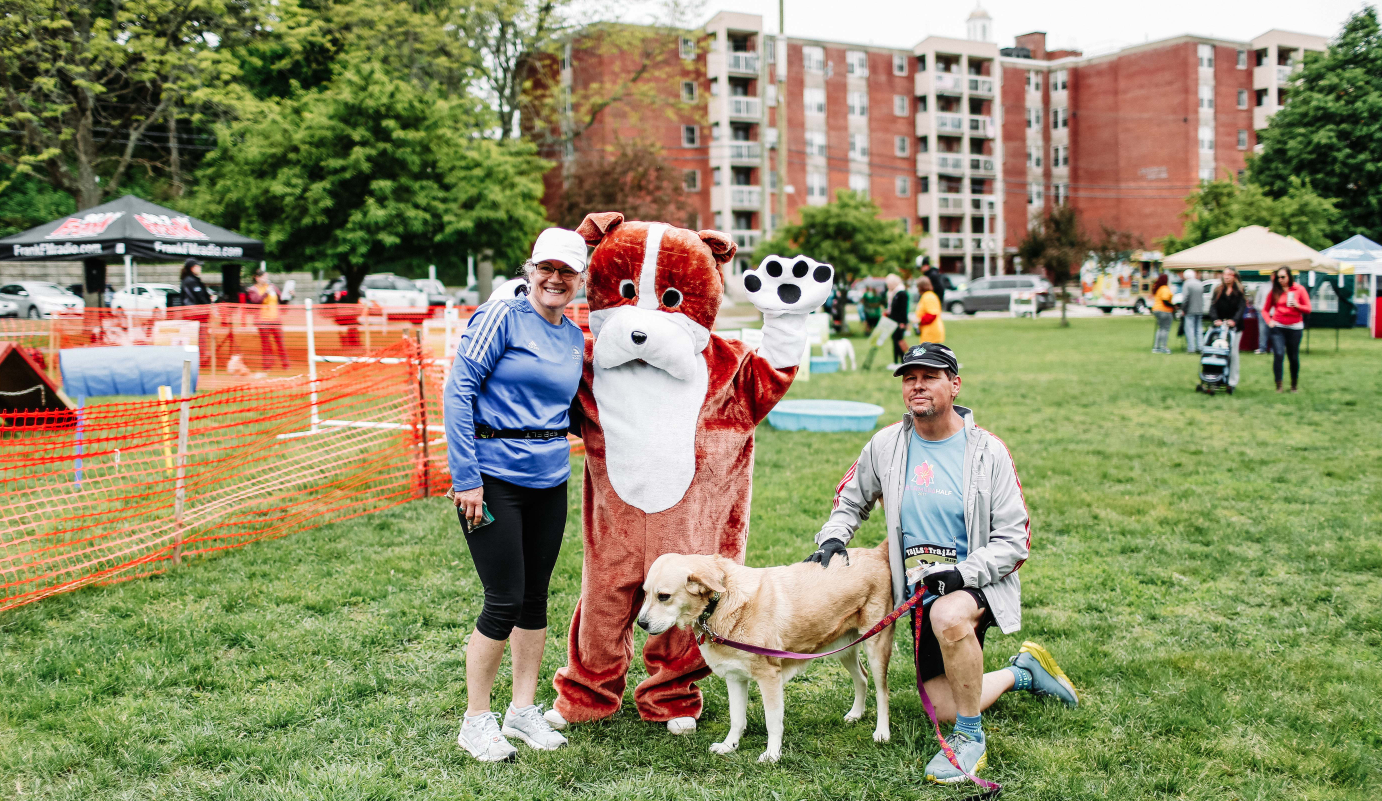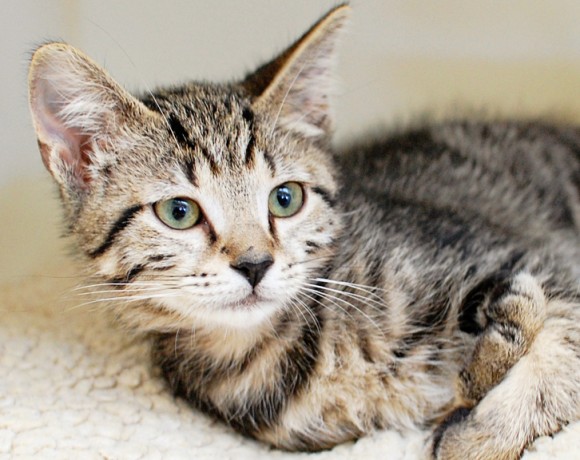Our shelter’s daily operations require a great deal of work. In-shelter volunteering involves direct animal care: the feeding, cleaning, and socialization of our cats, dogs, and small animals. If in-shelter volunteering is something that interests you, be prepared to perform a variety of different tasks. This is a good way to spend time directly with the animals and make the small contributions that make their lives a little sweeter. Something as simple as talking quietly with a nervous rabbit could make the difference between them learning to trust people and hiding at the back of their cage when potential adopters come to look at them.
Direct Animal Care
CAT CARE TEAM Volunteers assist with cleaning cat cages and litter boxes, feeding cats, and spending some time to socialize with the cats to help them feel more comfortable here in the shelter while they wait for their forever homes. All cat team volunteers must complete our basic cat care training.
There are four cat care shifts each day. Volunteers will not necessarily stay for the entire shift.
- Morning Shift: 8:15am – 11am
- This shift involves cleaning cat cages, cleaning litter pans, feeding cats, cleaning the cat room, and socializing with cats. The morning shift is the most labor-intensive shift, as it involves the most cleaning.
- Midday Shift: 12pm – 2pm
- This shift involves cleaning litter pans and socializing with cats. This is one of the least labor-intensive shifts.
- On days that PMHS-CV is open for walk-ins, volunteers may need to interact with the public. This will be discussed in the cat care training.
- Late-Day Shift: 2pm – 4pm
- This shift involves cleaning litter pans, feeding cats, potentially cleaning cages, and socializing with cats.
- On days that PMHS-CV is open for walk-ins, volunteers may need to interact with the public. This will be discussed in the cat care training.
- Evening Shift: 4pm – 6pm
- This shift involves cleaning litter pans and socializing with cats. This is one of the least labor-intensive shifts.
- On days that PMHS-CV is open for walk-ins, volunteers may need to interact with the public. This will be discussed in the cat care training.
Please note that cleaning litter pans, cat diarrhea, and cat vomit is an inevitability. Any volunteer who is not comfortable cleaning cat feces, urine, or vomit may want to consider another area of volunteering.
SMALL ANIMAL CARE TEAM Volunteers on the small animal team assist with cleaning cages and feeding the small animals, checking water, and spending some time socializing with the small animals as appropriate. All small animal team members must complete our small animal care training.
There are four small animal care shifts each day.
- Morning Shift: 8:15am – 10:30am
- This shift involves cleaning animal enclosures, feeding animals, cleaning the small animal room, and socializing the animals. This is the most labor-intensive shift. Many small animals are housed in exercise pens, so volunteers must be able to repeatedly bend over without hurting themselves.
- Afternoon Shift: 1pm – 2p
- This shift may involve some spot cleaning, but it is almost exclusively socialization.
- Late-Day Shift: 2pm – 4pm
- This shift may involve some spot cleaning, but it is almost exclusively socialization.
- Evening Shift: 4pm – 6pm
- This shift may involve some spot cleaning, but it is almost exclusively socialization.
Socializing small animals is an important part of being a small animal volunteer. Most small animals are prey animals, which means their instincts are to hide from us. “Socializing” a small animal means to teach the animal that humans are not predators. It is a delicate and rewarding process!
DOG WALKING TEAM Our shelter dogs need to be walked several times each day both for bathroom breaks and to help them use up some of their energy and have a break from their kennels. Dog walk volunteers take the dogs for 20-40 minute walks around the area surrounding the shelter. All dog walkers must be at least 18 years old and complete our dog walker training.
There are four dog walking shifts each day. Depending on the number of walkers and the number of available dogs, volunteers will not necessarily stay for the entire walking shift.
- Morning Shift: 8:15am – 10:30am
- Midday Shift: 11am – 1pm
- Late-Day Shift: 2pm – 4pm
- Evening Shift: 4pm – 5:30pm
The dogs’ feeding schedule is based around their walking schedule. Because of this, these times are not flexible (ex: you cannot walk dogs between 1pm and 3pm).
Volunteers are expected to follow all dog walking rules and protocols, which will be taught at the Dog Walking 101 training session. This includes picking up dog poop (PMHS-CV provides poop bags) and disposing of poop in the appropriate receptacles. Any volunteer who is uncomfortable with picking up dog poop should not volunteer as a dog walker.
GENERAL SHELTER HELP General shelter help is an essential part of keeping our shelter clean and caring for our animals. This mostly involves doing dishes and laundry, but can also include sweeping, mopping, vacuuming, and other cleaning tasks. While these cleaning tasks may not be fun, performing them are great acts of love, as every animal deserves clean linens, toys, and bowls.
There are three general shelter help shifts each day: 9am – 12pm, 12pm – 3pm, & 3pm – 5:30pm. Volunteers are not expected to stay for the entire shift (but are more than welcome to!). When volunteers sign up for general shelter help shifts, staff are able to focus on other tasks, such as creating animal enrichment activities or processing donations.
VOLUNTEER REQUIREMENTS for Direct Animal Care Positions:
- We require a minimum 6-month commitment to the shelter.
- Depending on the position, we request a minimum of 4 shifts per month.
- All volunteers must attend orientation and complete training in the animal care area(s) they will be volunteering.
- Volunteers ages 14-15 will need to be accompanied by a parent or guardian over the age of 21 during their volunteer shifts. This person must also attend orientation and all applicable trainings.
- All scheduling is done online through our scheduling software Volgistics. Volunteers must sign up for their shifts in advance. Because we are a busy and fast-paced animal shelter, we are not able to accommodate walk-ins.
- A one-time $10 donation is suggested at the time of your orientation. This donation helps us to offset the cost of administering the volunteer program.
We are happy to sign off on volunteer hours needed for graduation requirements however it is against our policy to accept volunteers seeking to fulfill court-ordered community service.
Getting Started:
- After you’ve reviewed the requirements for volunteering, the next step toward becoming a volunteer is to submit an application.
- Applications are required for all volunteers. This includes parents supervising children less than 16 years of age and caregivers with clients.
- Approved applicants are invited to attend an orientation. Orientation will provide you with an overview of the PMHS volunteer program and will give you an opportunity to ask any questions you might have.
Existing volunteers log in here:
Are you ready to begin your commitment to volunteer with PMHS-CV? Click HERE to fill out a volunteer application!
Still have questions?
Please contact our volunteer coordinator at [email protected]
Direct Animal Care

Special Events

Foster Care

